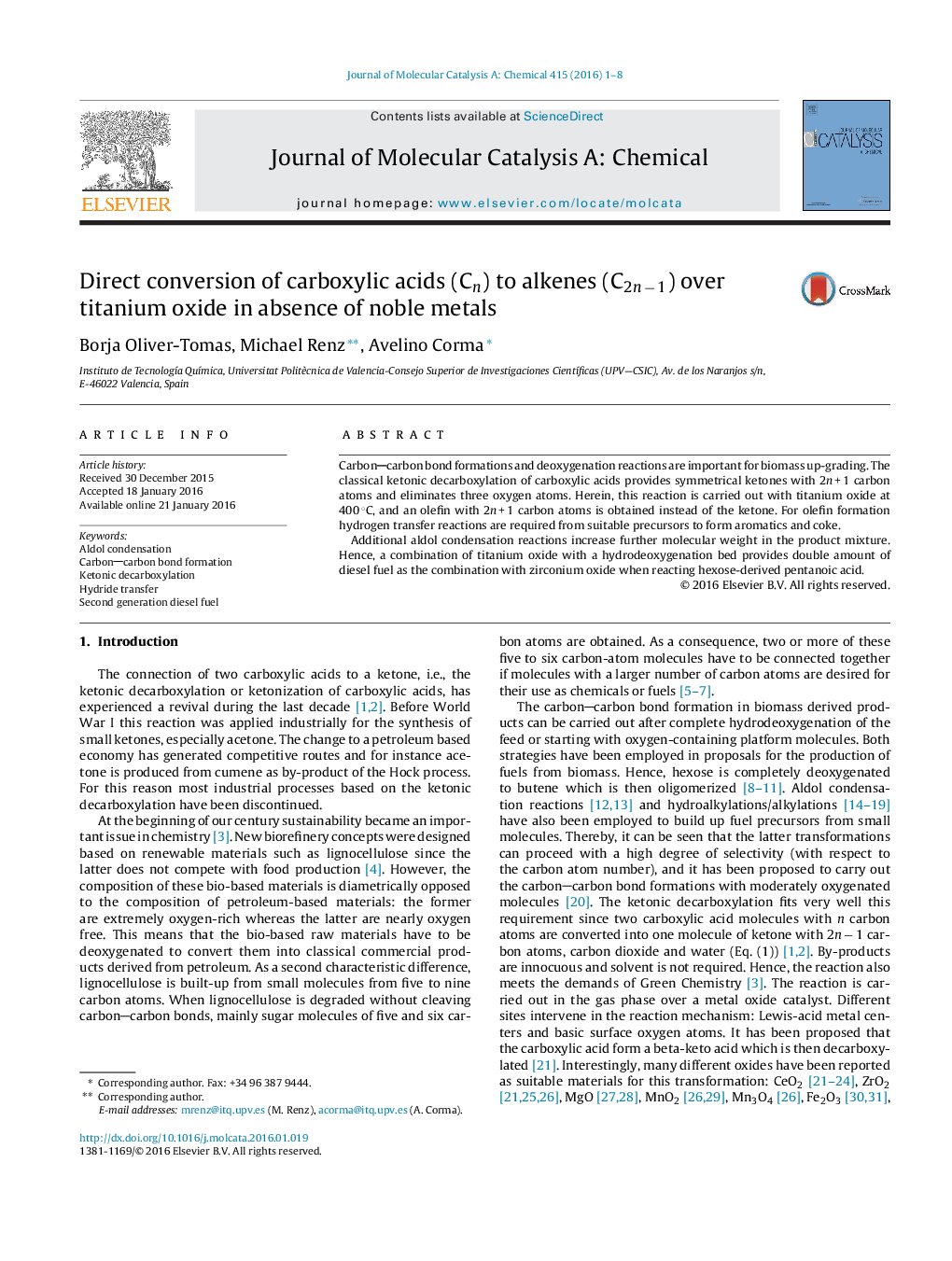| Article ID | Journal | Published Year | Pages | File Type |
|---|---|---|---|---|
| 64683 | Journal of Molecular Catalysis A: Chemical | 2016 | 8 Pages |
•TiO2 provides the ketonic decarboxylation product at lower temperature than ZrO2.•TiO2 transforms the ketone into the corresponding olefin by hydride transfer.•Additional carboncarbon bonds increase diesel fraction from pentanoic acid.
Carboncarbon bond formations and deoxygenation reactions are important for biomass up-grading. The classical ketonic decarboxylation of carboxylic acids provides symmetrical ketones with 2n + 1 carbon atoms and eliminates three oxygen atoms. Herein, this reaction is carried out with titanium oxide at 400 °C, and an olefin with 2n + 1 carbon atoms is obtained instead of the ketone. For olefin formation hydrogen transfer reactions are required from suitable precursors to form aromatics and coke.Additional aldol condensation reactions increase further molecular weight in the product mixture. Hence, a combination of titanium oxide with a hydrodeoxygenation bed provides double amount of diesel fuel as the combination with zirconium oxide when reacting hexose-derived pentanoic acid.
Graphical abstractFigure optionsDownload full-size imageDownload high-quality image (92 K)Download as PowerPoint slide
